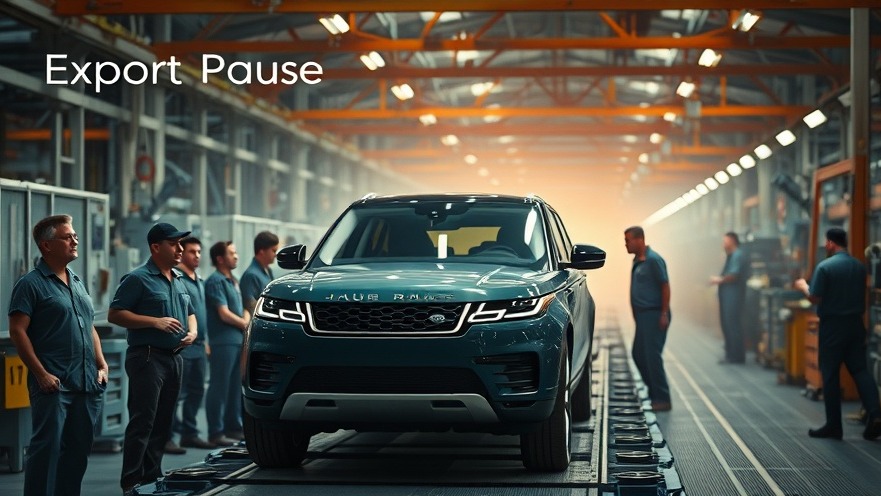
Why Jaguar Land Rover's Export Pause Matters
In a surprising turn of events, Jaguar Land Rover has decided to pause its exports to the United States in response to tariffs imposed by the Trump administration. While it may seem trivial to some, particularly those who don't drive these luxury vehicles, the implications of this pause on the American car market are significant. The British luxury car manufacturer has been a staple for buyers looking for status and prestige, yet many consumers are now questioning the value of vehicles that are becoming increasingly expensive due to tariffs.
In 'This Car Brand Just Left America Due to Tariffs,' the discussion dives into the broader implications of the export pause, exploring key insights that sparked deeper analysis on our end.
The Changing Landscape of Automobile Financing
One compelling aspect raised in the discussion is how consumers are financing their cars. With the average new car in the U.S. costing over $48,000, buyers are stretching their budgets with longer loans—some even for seven years. This trend can lead to a mountain of debt as interest rates rise, averaging about 7.1% for car loans today. When potential buyers base their purchasing decisions primarily on the monthly payment, they might overlook the total cost over time. This situation adds another layer of uncertainty in a market where used cars might soon become the more sensible choice.
Addressing the Concerns About New Car Purchases
People considering purchasing a new vehicle should be cautious. The current economic climate suggests that holding off on that shiny new car in favor of a used option could yield significant savings. A used car could not only cost less upfront, but as the economy fluctuates, it may also retain a better resale value. It's crucial for consumers to assess the complete picture, focusing on total costs rather than just monthly payments, as this oversight could lead to financial pitfalls.
Consumer Trust in Dealerships: The Toyota Example
A particularly troubling event illustrated in the video is the case of a soldier who experienced an oil leak in his Toyota Tundra. Concerned about potentially losing his warranty, he sought help from the dealership only to be dismissed. This incident reveals an unsettling trend in consumer trust toward dealerships. When manufacturers like Toyota can't guarantee their dealerships uphold their promises, it leads to a breakdown in relationships and potential loss of customers. It turns the buying experience from exciting to frustrating, highlighting the potential risks associated with new car ownership.
The Future of Electric Vehicles: A Grim Outlook?
The video also touches on the decline in demand for electric vehicles, as indicated by the layoffs at GM and their pullback from electric car production. As manufacturers struggle to understand what consumers truly want, there lies a potential opportunity for buyers to capitalize on their hesitancy. For many, the rushed transition to electric does not yet meet their needs or offer the reliability they seek in a vehicle.
In conclusion, while the pause in Jaguar Land Rover's exports may seem like a minor hiccup in the automotive industry, it signals deeper issues, from financing strains to trust in dealerships and the uncertain future of electric vehicles. If you are in the market for a new vehicle, consider taking a step back to evaluate your options and perhaps lean toward a good used car instead. Not only could it be financially savvy, but it may also spare you from the stress of navigating a complex auto market.
 Add Row
Add Row  Add
Add 




Write A Comment